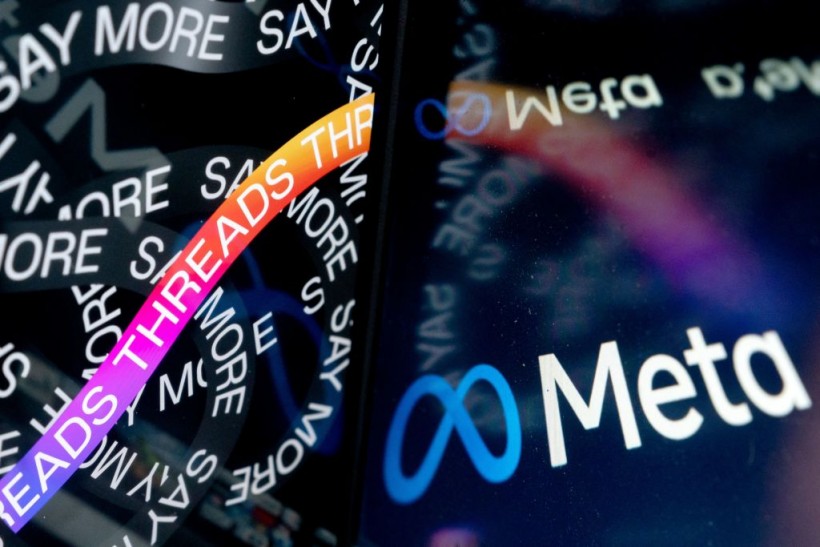In recent months, dozens of software businesses have begun running explicit ads on Facebook, Instagram, and TikTok for apps that encourage experiences that are not appropriate for the workplace. The advertisements feature numerous digitally made possible "girlfriends" with huge breasts and skimpy attire, and they all offer "NSFW pics," "custom pinup girls," and chats with "no censoring."
Others use digitally generated ladies who appear to be teenagers or younger, frequently in the style of anime. Some ads use memes featuring well-known children's TV characters, such as SpongeBob SquarePants, Bart Simpson, or Cookie Monster to market programs with which anyone may create "NSFW pics."
35 app developers are running pornographic advertisements on applications that are owned by Meta, the company that owns Facebook and Instagram, as reported by NBC News. In total, the app developers were running over a thousand advertisements, many of which were easily found and viewed on Meta's public online library of advertisements.
There were hundreds of sexually explicit AI advertisements being run on TikTok by 14 app developers. Some of the ads were identical to those on Meta, but not all of them. However, it remained unclear how many of them were viewed in the United States because TikTok's ad library only offers transparency for advertisements that show in Europe. Advertising on TikTok is forbidden if it "displays or promotes the use of prohibited adult products or services."
For the sake of transparency, Meta and TikTok publish ad-related records in openly searchable archives. They acknowledged that not all of the developer's advertisements had been removed, but some of them had. According to TikTok's library, several advertisements received thousands of views and were visible for weeks before being taken down.
Read also: Experts Warn of Growing Threat of AI-Generated Misinformation in US 2024 Elections
A Part of AI Gold Rush?
The marketing campaign is part of the AI gold rush in which software developers, many of whom are located abroad, are luring users who want to engage with customized digital avatars in sexual or romantic ways. It's part of a bigger effort to take advantage of the increase in interest in AI that has occurred in the wake of the success of tech firm OpenAI's ChatGPT product, which changed people's perceptions of what AI chatbots could do.

(Photo: by STEFANI REYNOLDS/AFP via Getty Images))
This photo illustration created in Washington, DC, on July 6, 2023, shows the opening page of Threads, an Instagram app, near the Meta logo. More than 10 million people have signed up to Threads, Meta's rival to Twitter, within the first few hours of its launch, the company's CEO Mark Zuckerberg said July 6.
According to experts, sexually explicit AI apps profit from a double standard that harms real human sex workers.
The advertisements typically feature sexualized women, which exhibits a gender-based bias because social media sites only permit sex-related advertisements if men are the target audience. Searches for terms related to virtual girlfriends generally produce more results than searches for terms related to virtual boyfriends, though the ad libraries from Meta and TikTok don't always record the rejected or removed ads, making it difficult to tell what ads have been moderated by the platforms.
Removal of Erotic AI Ads Increases
Meta and TikTok increased the removal of sexually explicit AI advertising, but they remained silent when asked how the ads managed to bypass their filters in the first place.
In a statement, Meta stated that its prohibition on adult content covers both human- and AI-generated content. Additionally, Meta stated that it is examining the standards in its policies that are visible to the public.
TikTok affirmed that company regulations forbid sexually suggestive advertisements and claimed to have taken down any samples provided by NBC News.
Similar advertisements can be seen in the Apple and Google app stores, but the volume of advertising there is unknown because those businesses don't reveal the identities of all ad buyers. One of the most popular methods used by tech startups to attract new clients is through app store and social media marketing.
According to Apple and Google, their app stores do not allow pornographic software.
Google claimed it had suspended many apps and advertisements. It also acknowledged on Thursday that its app store doesn't allow services "intended to be sexually gratifying."
Related article: AI Firms Allegedly Steal Twitter User Data! Elon Musk Now Blocking Unregistered Users From Seeing Tweets








